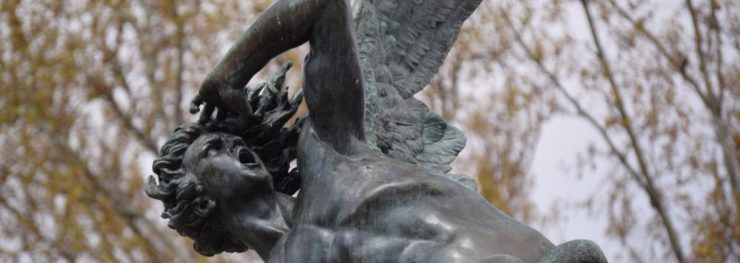The question has been posed regarding how God, who knows everything including the future, could be responsible for having created as He did and whom He did when He knew the course they would take; of course, diametrically opposed to His own nature and character. Why did He instill the ability to make moral choices in the angel Lucifer, who would, then, become Satan? The same Satan deceived and influenced our original parents to follow his rebellious path. As a result, all human adversity in the forms of disease, death, conflict, war, injustice, and every other woe of humanity has been realized and is realized daily in an ongoing, unrelenting basis. Couldn’t God have done better? Giving the power to make moral choices when you know full well that wrongful choices would be made with very disastrous consequences appears to make the Creator God look irresponsible, does it not? Whatever could have been His point in bestowing volition upon His creatures, both angelic and human?
There are, no doubt, multiple reasons God had that we do not know, but we do know of at least one, and it is formidable. Volition, or free moral will, contains both the ability to obey or disobey, as well as to love or to hate, and all other such like decisions that contain powerful and lasting consequences. Yet, it is only in having this free moral base that value is realized. There is built-in value to a voluntary obedience that involuntary obedience does not have. So, too, there is value and great desirability in a love that is rendered with the will. Love is a choice, an act of the will on the part of the one loving. Does anyone want to be loved because their lover has no choice but is programed to love them? Would God want that kind of love any more than those He created? It would appear not. On the surface, and from our finite point of view, it appears that God took a risk in creating beings with a free moral will, and it backfired on Him. Would God like a “do-over”? But, really now, with the omniscience of God, His absolute knowledge of everything past, present, and future so fully established in Scripture, the concept of God taking a risk must be rejected. He who knows the end from the beginning, and who calls things that are not as though they are, has never taken a risk. Risk always involves an unknown outcome, and God cannot not know outcomes or all the circumstances that will occur in reaching the outcomes.
Based upon that reality, God was pleased to create whom He did as He did, volition and all. Revelation 4 informs us that, all things considered and with His perfect perspective in place, God was pleased to create all that He did, how He did, when He did, and why He did.
CC 09-02


Published by